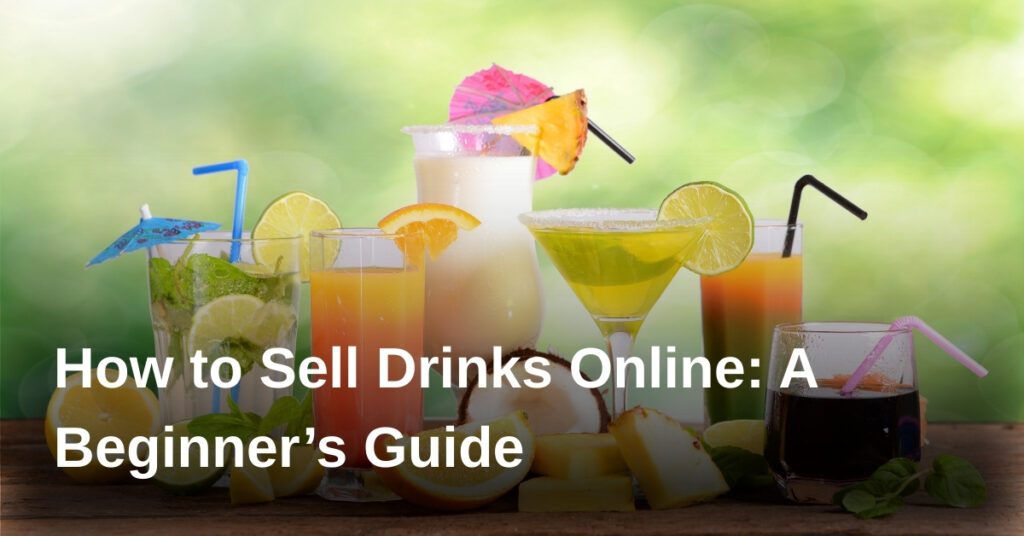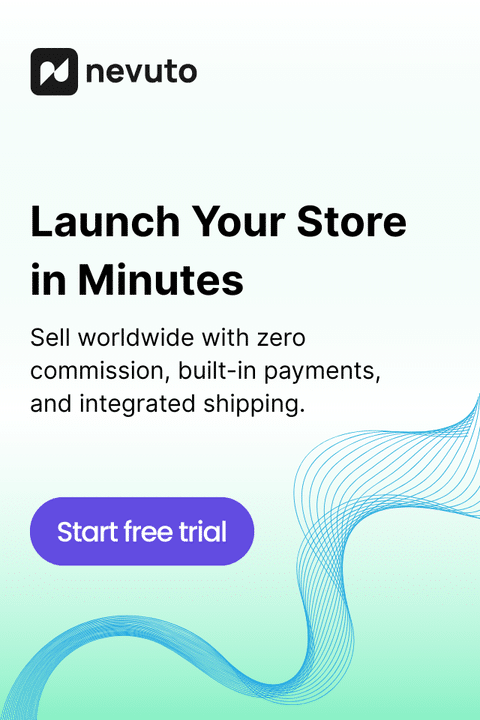
Understanding Online Drink Sales: Market Trends and Opportunities
The landscape of online Sell drinks continues to evolve, influenced by changing consumer habits and digital convenience. While many buyers stick with familiar favorites, there is a noticeable curiosity driving exploration of new flavors and wellness-oriented beverages. The popularity of best selling soft drinks like colas and flavored waters rarely declines, but specialty sodas and sugar-free alternatives also carve out growing niches. Factors shaping these choices can include price, branding, and even seasonal trends, although predicting what truly makes a product one of the top selling soft drinks isn’t always straightforward.
- Convenience: Fast delivery and easy online payment encourage impulse purchases.
- Variety: Wider selection compared to physical stores enables consumers to experiment.
- Marketing: Targeted ads often nudge shoppers toward trending beverages.
Accordingly, businesses that aim to Sell drinks online can thrive by staying alert to shifting demands and consumer preferences across the Sell drinks market.
You Can Also Review These:
The Ultimate Guide On How To Sell Liquor Online | 7 Easy Steps
Legal Requirements and Licenses for Selling Drinks Online
Before you launch a website to sell drinks online, understanding the legal landscape is crucial. Regulations can vary between regions, yet there are commonly required licenses you may need. A typical prerequisite is an alcohol license, though what kind you need depends on your products and where you sell drinks. Often, online retailers must register as a business, obtain tax permits, and verify buyers’ ages. Some areas require separate approvals for shipping alcohol, especially if you plan to sell drinks across state or national borders. Nevertheless, these rules are sometimes open to interpretation, so consulting local authorities or a legal advisor is wise. Additionally, labelling laws require accurate ingredient and alcohol content disclosure. Keeping up with changing guidelines is essential because penalties for non-compliance can be substantial. Although requirements seem complex at first, adhering to them sets your online store up for smooth and responsible operation.
Choosing the Right E-commerce Platform for Your Beverage Business
Selecting the best e-commerce platform to sell drinks can be challenging, as requirements for beverage businesses differ slightly from other industries. You’ll want seamless inventory management, flexible shipping options, and an attractive storefront to showcase your signature blends or craft products. Not all platforms prioritize features crucial for those who sell drinks, such as age verification or temperature-sensitive shipping integration. Some solutions may offer more design flexibility, while others focus on back-end functionality. Still, the ideal choice depends on your business model—whether you’re prioritizing subscription boxes, bulk orders, or one-time sell drinks purchases. Additionally, consider scalability; as your beverage brand grows, your platform should adapt without excessive technical headaches. Therefore, before committing, explore trial periods, reach out to support teams, and perhaps consult with industry peers. Your future success might hinge on making a carefully informed decision now.
Building a Standout Brand: Packaging and Product Differentiation
Establishing a memorable identity in today’s competitive market requires much more than just a quality beverage. Carefully crafted packaging and strategic product differentiation play pivotal roles. Eye-catching packaging does more than capture attention; it communicates your brand’s story and values immediately. However, there are subtle choices involved, from color schemes to material textures, each potentially influencing perceptions and even decisions to sell drinks. Additionally, product features—like unique ingredients, health benefits, or sustainable sourcing—can set your drinks apart. For some brands, experimenting with unusual flavors or limited editions has proved effective, although consumer preferences can be unpredictable. In my opinion, brands that succeed often blend practicality with personality in their design and narrative.
- Design: clear logos and attractive colors invite curiosity.
- Sustainability: eco-friendly packaging appeals to conscious consumers.
- Innovation: novel twists, such as functional additives, intrigue customers.
Ultimately, to sell drinks successfully, every detail—from first glance to final sip—matters, even if some choices remain open to interpretation.
Crafting Compelling Product Listings that Drive Sales
Creating compelling product listings is crucial for businesses aiming to sell drinks online. A well-written description captures attention yet also builds trust. However, the perfect listing strikes a balance between creativity and clarity—not every detail must be included, but every word should serve a purpose. Therefore, highlight unique features, whether it’s an organic ingredient, a refreshing flavor, or eco-friendly packaging. Including tempting visuals can be just as persuasive as your words. Additionally, consider the audience: do they want quick refreshment or a premium experience? Address their needs directly. In my opinion, a little storytelling—perhaps about the drink’s origin or the care behind its creation—can leave a lasting impression. Nevertheless, always ensure vital facts, like serving size and sell drinks options, are easy to spot. This approach not only informs but often gently nudges shoppers toward that Sell drinks purchase button.
Digital Marketing Strategies to Promote Your Online Drink Store
Effectively reaching customers in the digital realm often requires a multi-faceted approach. One primary step is to identify your target audience and tailor content accordingly. Through platforms such as social media and email, you can Sell drinks by showcasing unique flavors or limited-time offers. Consistency in brand voice, yet flexibility in campaigns, helps foster trust. It’s not always clear which channel yields the best results; however, analytics tools offer valuable insights.
Optimising your product descriptions and using high-quality images can make customers more likely to Sell drinks through your website. Collaboration with influencers may help, but authenticity truly matters. Additionally, launching seasonal promotions often sparks interest. As some marketers put it:
“Creativity, not just discounts, convinces customers to hit the ‘Add to Cart’ button.”
Nevertheless, keeping up with trends and feedback, although it requires effort, makes a considerable difference in your quest to Sell drinks online.
Navigating Shipping, Fulfillment, and Beverage Logistics
Dealing with shipping, fulfillment, and beverage logistics can seem straightforward, yet there are layers of detail that even experienced sellers may overlook. When you sell drinks online, various factors come into play. For instance, product fragility, temperature sensitivity, and local regulations may influence the entire delivery process. Therefore, it’s essential to select reliable carriers, invest in quality packaging, and always track orders closely. However, even with thorough planning, occasional delays or damages might still occur, especially in extreme weather or during peak seasons.
A few best practices for streamlining logistics include:
- Automate order tracking: minimize errors and save time.
- Partner with temperature-controlled shippers: maintain beverage quality.
- Regularly update inventory systems: avoid overselling or stockouts.
Although the perfect system rarely exists, staying adaptable and maintaining clear communication with customers goes a long way as you sell drinks successfully.
Ensuring Compliance: Alcohol Regulations and Age Verification
Navigating alcohol regulations is crucial for any venue wishing to sell drinks responsibly. Laws can vary by region, but many guidelines share a focus on strict age verification. Most establishments must check identification at the point of sale to ensure individuals are of legal age before they sell drinks. But methods differ; some bars use electronic scanners, while others train staff to spot fake IDs. Interestingly, there’s a degree of uncertainty, as not all rules clearly define acceptable forms of ID or exact staff training requirements. Nevertheless, failing to follow age limits when you sell drinks can result in hefty fines or license suspension. Therefore, ongoing staff education and regular checks help maintain compliance. Ultimately, these measures aim to protect communities and uphold public safety, although constant updates in legislation mean vigilance is always required for those serving alcohol.
Leveraging Customer Reviews and Social Proof to Build Trust
Building trust is an ongoing process, especially for businesses looking to sell drinks. Genuine customer reviews play a vital role because they provide real-world insights that reassure potential buyers. Positive feedback can signal quality and reliability, yet even mixed opinions sometimes add credibility rather than harm it. People tend to trust brands with visible engagement and honest responses, so showcasing reviews prominently can make a difference. Moreover, when customers share experiences on social media and recommend your sell drinks offerings, it subtly amplifies your reputation. Nevertheless, it remains uncertain how much social proof is truly enough, since some visitors might weigh it more heavily than others. Therefore, actively encouraging reviews and displaying them thoughtfully can influence decisions in your favor. In the long run, adopting this transparent approach could help sell drinks more effectively, building lasting customer relationships.
Tracking Sales Performance and Scaling Your Online Drinks Business
Keeping a close eye on your Sell drinks figures is crucial if you want to understand how your business grows. Tracking key metrics such as conversion rates, average order value, and customer retention lets you spot trends early. Sometimes, the numbers are clear; other times, the reasons behind sales fluctuations can be less obvious—customer preferences can change suddenly, or a new competitor might emerge. Comparing week-on-week and month-on-month Sell drinks data helps to identify what’s working and what isn’t. Adjusting your strategies becomes easier when reliable information guides your decisions, especially as your online drinks business expands. It’s a good idea to regularly review your Sell drinks performance against set targets and experiment with different marketing approaches. Additionally, keeping an organised sales record aids in budgeting and forecasting, ensuring you scale up smoothly. Nevertheless, finding the right balance between growth and consistency often requires ongoing attention and thoughtful adjustment.
Conclusion
Building your own path to sell drinks online might seem overwhelming at first, but it’s completely achievable with the right approach. By understanding regulations, choosing quality products, and connecting with your audience, you lay the groundwork for a business that feels personal and inviting. Although challenges may arise, keeping things simple and consistent helps you adapt and grow. In my opinion, genuine passion and patience make all the difference—you’re not just selling beverages; you’re creating memorable moments for your customers.
Related Articles:
How to Sell Accessories Online: A Beginner’s Guide
